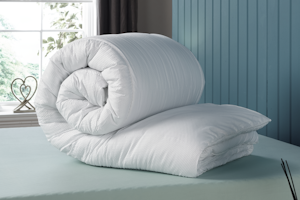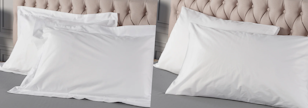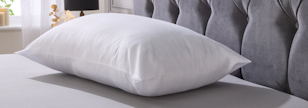04 Jun 2025
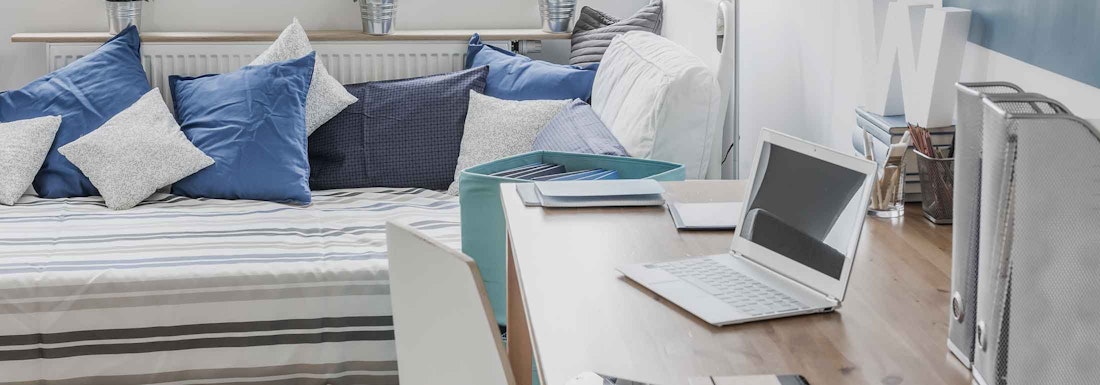
The Perfect Study Bedroom Checklist
24 Mar 2023
When it comes to studying, your external environment is just as important as your internal one. It’s near-impossible to work at your optimal level if you don’t have the right environment and tools to do so. Still, it’s equally important to have space for you to relax in when the studying stops. Crafting the perfect study bedroom therefore relies on creating a space dedicated to studying only, organising and decorating it with productivity as a priority.
For the perfect study bedroom, you’ll need a desk, a chair, bright lighting, stationery, storage, and a water bottle. You can then add additional touches to decorate the area, such as a pinboard, houseplants, candles, and/or a speaker or noise-cancelling headphones. Finally, you must take some practical actions to maintain your mental focus in the study zone, like setting yourself ground rules and sticking to a regular schedule.
How to Create the Perfect Study Bedroom
Follow through this checklist in the creation of your study bedroom.
1. Designate a Specific Area of Your Bedroom for Studying
The first stage in creating the perfect study bedroom is choosing the area to be your study zone. You need to make this area the only part of the room you use for studying; dedicate the study zone for work, and keep the rest of your room for relaxation.
If you want to work at your best, you need to begin by creating the optimal environment in which you can do so. Unfortunately, this means that studying from the comfort of your bed, or any other comfy spots in your room, is off the table. It’ll be much easier to switch your mindset into work mode if you have a designated space for the sole purpose of studying; think of this zone as your mini in-bedroom office.
You may need to rearrange the furniture in your room to create your new study space. Picking a spot near a window is a good idea as the natural light will keep your mind naturally alert. However, if you’re easily distracted, it may be a better idea to choose an area facing a wall instead. Again, the one rule here is that you keep this area a study-only zone.
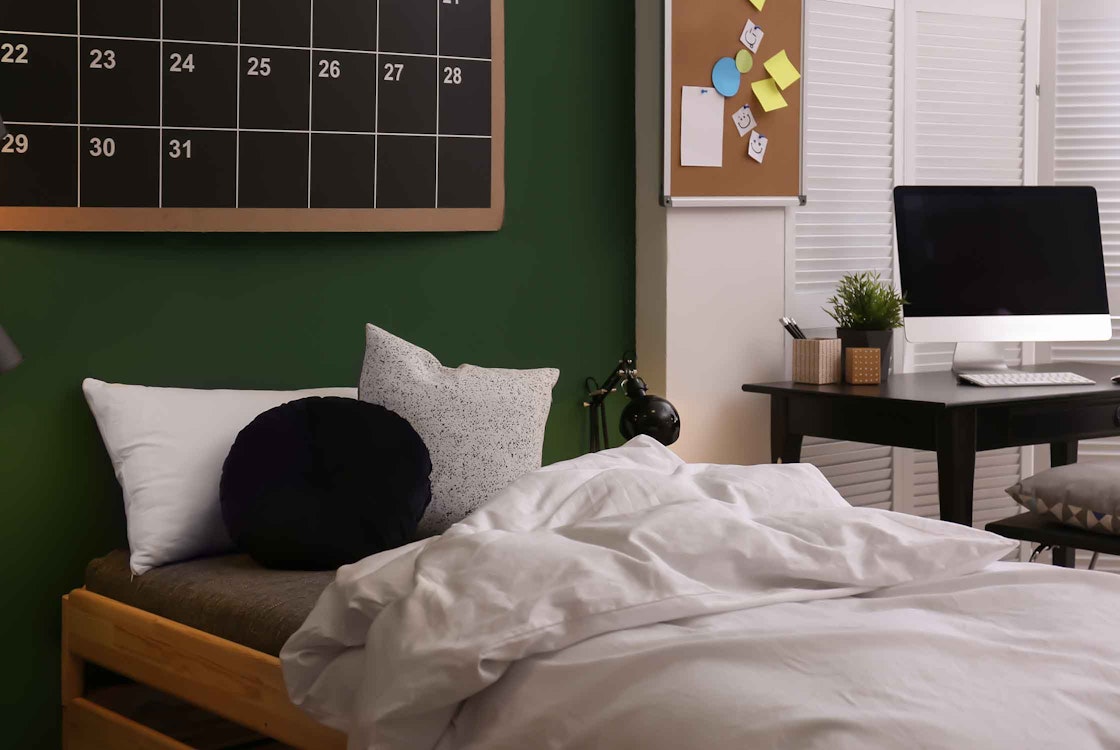
2. Organise the Study Area with its Purpose in Mind
With your designated zone chosen, you can begin crafting your study area. This is the stage where you’ll kit it out with everything you’ll need to study; then you should organise the space with productivity in mind.
Start putting together each element of your study zone as per our checklist below:
- Desk and Chair: The first and most important elements of your study zone will be a desk and comfortable chair. Before you purchase, calculate the best height for your desk; you should be able to comfortably sit upright without hunching over. Then, look for a comfortable chair, ideally one that’s ergonomically designed.
- Lighting: Next, you need to ensure the area has sufficient lighting. As we’ve said, natural lighting from a window is best to keep your mind wakeful. Still, regardless of whether you have a window nearby, you should invest in a desk lamp. Use a ‘daylight white’ bulb; your brain will stay more alert with this type of lighting over ‘warm white’ bulbs.
- Stationery: You should then put together a study toolkit by purchasing new stationery for your study zone. Treat yourself to some new pens, highlighters, post-it notes, notebooks, and anything else you may need for your particular studies.
- Clutter Storage: Now you’ll need some storage for all of your study supplies to keep the area organised. Invest in some storage solutions like stationery holders and document trays for any loose items in your study zone. If possible, consider putting up shelves or purchasing a larger storage unit to stow away important items.
- Water Bottle: A final essential item is a reusable water bottle. It’s easy to forget to drink enough water when you’re deep in a studying sesh; keeping a dedicated water bottle in your study zone will ensure you always stay hydrated.
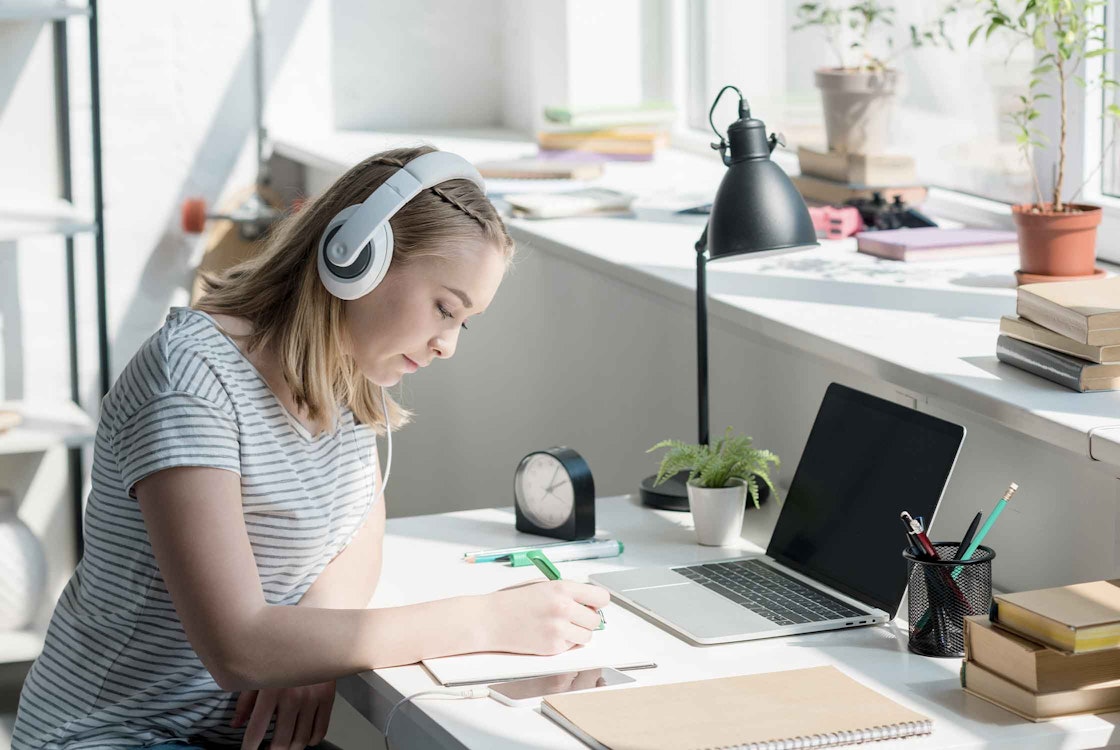
3. Decorate the Study Area
Now you’ve got the practical side of things covered, it’s time for the fun bit - personalising your study area. Just because the area is designated for work, it doesn’t need to be boring; you need to make it a space that you’ll actually enjoy spending time in.
If you want to keep your study area a completely neutral space, that’s fine, you can skip the extra decoration; everyone is different, and perhaps you’re the kind of person who works best in a minimalistic environment. Otherwise, you should get creative with your space and decorate it to your preferences. Personalising your bedroom study zone will make it more inviting for you to spend time in; you can also use decorative elements like quotes or posters as visual cues to keep you motivated while studying.
There are lots of touches you can add to your study space to match it with your aesthetic and motivations. We’ve suggested a few ideas below:
- Pinboard: Consider putting up a pinboard above your desk. You can attach pictures, motivational quotes, self-messages, to-do or goal lists, or other important notes.
- Indoor Houseplants: Houseplants are a pleasant touch for any part of your room, especially your study area. Studies have shown that indoor plants help to reduce anxiety and stress; many houseplants also help to remove toxins from the air. Being one such houseplant, a pothos is a great option as a starter plant as they’re very easy to care for.
- Candles: Candles are another nice decorative and practical element for your study space. The soft light and pleasant smell can keep you feeling relaxed while you work.
- Speaker or Noise-Cancelling Headphones: Another addition to your study zone to consider is a speaker and/or noise-cancelling headphones. Many people find it easier to work with music playing in the background; plus, if you live with noisy housemates, headphones will work to block out distracting sounds.

4. Make the Study Area a Distraction-Free Zone
Although it’ll set you up for success, you can’t rely on your external workspace alone to keep you focussed. You also need to take some practical actions to keep yourself in ‘the study zone’ both physically and mentally.
Here are some final suggestions for optimal productivity in your bedroom study area:
- Set Self-Rules: Set yourself ground rules for whenever you’re in the study zone; for example, your phone must always be on silent, and no checking social media or other apps.
- Create a Schedule: Create a regular schedule and stick with it. Make sure you allow time for breaks.
- Use the Pomodoro Technique: Try out the Pomodoro time-management technique when you’re studying or working; this involves working for 25 minutes at a time, taking a 5-minute break between each focus period. This is a particularly beneficial technique for anyone who struggles with staying on-task.
